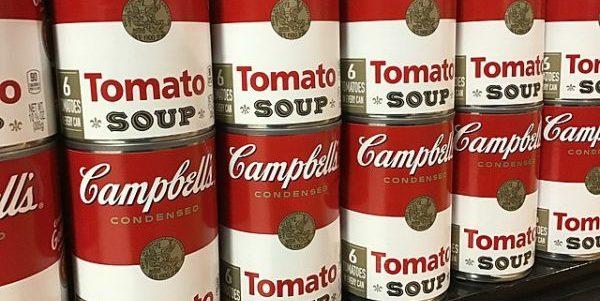(Mark Pellin, Headline USA) On top of skyrocketing interest rates, soaring back-to-school costs, ongoing pain at the pump and crippling consumer credit-card debt, a comfort-food favorite has become the latest casualty of the Biden regime’s misguided policies.
This time around, the pain is expected to flow from the administration’s decision to slap new tariffs “on can-making metal imported from China, Germany and Canada, a move that food companies say could lead to higher prices for some canned foods,” according to MishTalk.
“Chinese products would be subject to the highest tariffs of the three countries—a levy of 122.52% of their import value,” the outlet reported.
The tariff hike originated at the behest of “a petition from the United Steelworkers union and Ohio-based Cleveland-Cliffs, which owns one of the few remaining tinplate plants in the U.S. They said cheap steel imports were hurting U.S. steelmakers and domestic jobs,” the Wall Street Journal reported earlier this month.
Biden’s Commerce Department launched an investigation that found overseas steelmakers “sold their tinplate products in the U.S. at unfairly low prices, justifying new import duties.”
While good for Big Steel and labor unions, the new tariffs threaten the viability of small businesses and ultimately will cost consumers, said Rick Huether, whose family has for decades owned Independent Can.
The company “has survived the Great Depression, the Great Recession, two world wars, and 16 presidential administrations,” Huether wrote in a Fox News opinion piece when the tariffs were still being considered. The family-owned business isn’t sure it can make it through this particular presidential administration, he said.
“A study by Trade Partnership Worldwide forecasts that three years after the tariffs kick in, U.S. can production would decline by nearly 20%. That would force canning companies to cut manufacturing jobs by nearly 30%,” Huether wrote. “Further downstream, the decline in domestic can production would pressure U.S. food manufacturers to cut nearly 40,000 union and non-union jobs.”
With the new tariff triggered, Huether noted that Independent Can “won’t be the only ones in trouble. Their plan threatens tens of thousands of U.S. manufacturing jobs and would increase the price of canned goods across the country.”
Consumer groups also warned that the “new levies will mean higher prices for canned soups, vegetables and other products at a time when food prices have already been driven upward by inflation.”
The move comes in the wake of a Biden tariff binge that also included new hikes on solar panel companies who were reportedly dodging tariffs on Chinese-made goods, which was rooted out by the Commerce Department investigation that began last year.
“The U.S. Department of Commerce is out of step with the administration’s clean energy goals, and we fundamentally disagree with their decision,” said Abigail Ross Hopper, head of the Solar Energy Industries Association, as reported by NPR.
“It will take at least three to five years to ramp up domestic solar manufacturing capacity and the global supply chain will be vital in the short-term.”
The result has led to higher prices across the board, asserted MishTalk’s Mike Shedlock.
“Not only does Biden demand more clean energy, he also demands consumers pay the maximum amount for it, despite that being counterproductive to the main goal,” wrote Shedlock, who also noted that another new Biden regulation is set to trigger price hikes for all government projects. “Today we can add solar panels and soup to the list.”
There will be plenty of soup for the poor when they sign up or be drafted to fight on behalf of Biden and his cronies.
— Danny Dannerson (@mushytoe) August 21, 2023
“The Consumer Brands Association, a trade group representing companies such as Campbell Soup and Fresh Del Monte Produce, estimated new tariffs, if applied aggressively, could raise the prices of canned food by up to 30%,” the Journal reported.
Mark Pellin is an editor at Headline USA. Follow him at twitter.com/sabrepaw70.

